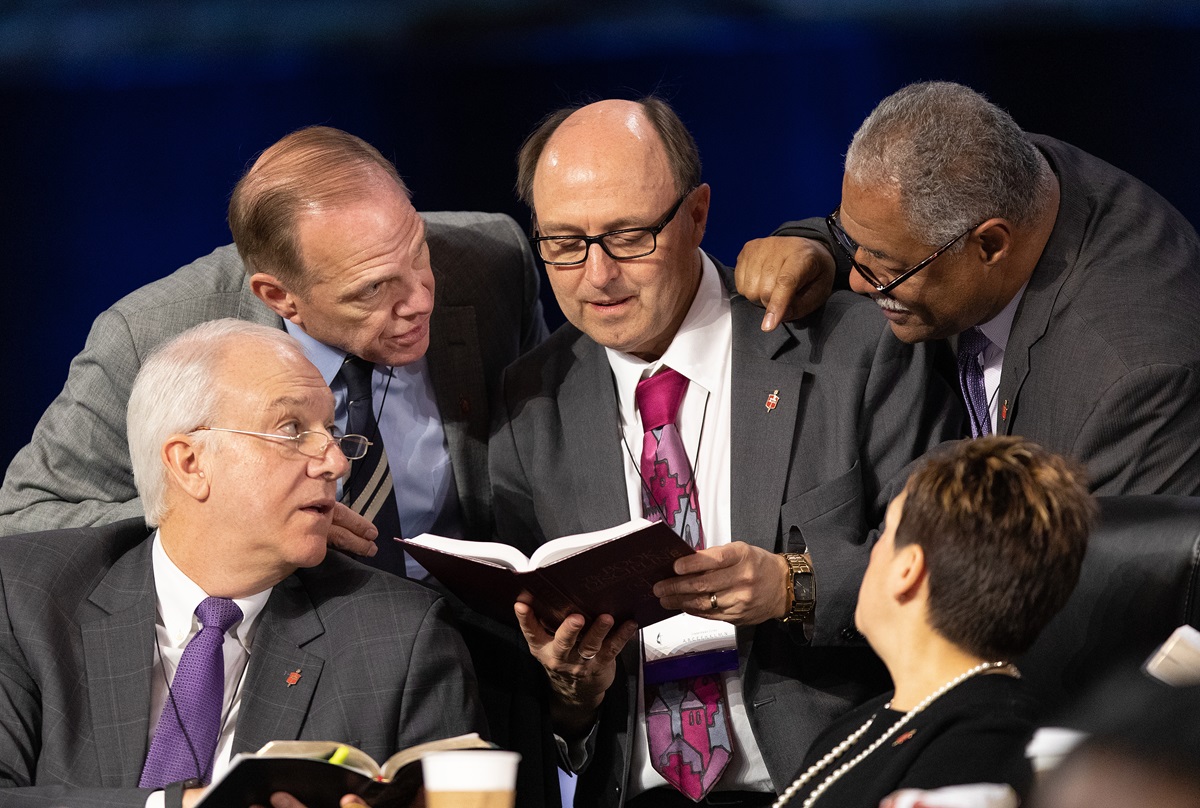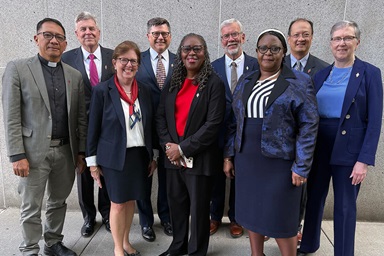General Conference delegates still have work to do to assure that all the proposed legislation approved Feb. 25 for a final vote conforms to the denomination’s constitution.
The United Methodist Church’s top court issued that ruling — as requested by the General Conference legislative committee — to guide delegates on their last day of the Feb. 23-26 special session.
Decision 1377 lists 17 petitions submitted by the legislative committee and the council’s determination of the constitutionality of each petition. Approved legislation related to Wespath, the church’s pension fund, was not under consideration.
Nine petitions — 90033, 90034, 90035, 90037, 90038, 90039, 90040, 90059 and 90066 — were deemed unconstitutional. The second sentence in another petition, 90045, also was found unconstitutional.
The nine petitions deal with subjects such as episcopal accountability and responsibilities, composition of boards of ordained ministry, the examination of candidates for ministry by the boards of ordained ministry and disaffiliation, or procedure for churches that want to leave. Petition 90045 addresses just resolutions.
The rationale for much of the declaratory decision referred to Decision 1366, the outcome of the council’s review of the Traditional Plan and One Church Plan during its October meeting in Zurich.
In that decision, the court looked at due process and the principle of legality in assessing the Traditional Plan. That principle of legality “means that all individuals and entities are equally bound by church law,” the decision said. That decision said the law was to be applied fairly at all levels of the connection.
The Traditional Plan would impose mandatory penalties on those who do not adhere to church law that prohibits self-avowed practicing homosexuals from serving as clergy and clergy from officiating at same-sex weddings.
“Clergy persons whose credentials and conference membership are at stake have the right to know what to expect when they choose a course of action or take a particular stance on ordination, marriage and human sexuality,” Decision 1366 said.
The majority of Judicial Council members also found that the two petitions about disaffiliation, 90050 and 90066, were in conflict with the constitution. Petition 90050 does not meet the two-thirds majority requirement for voting found in Paragraph 41, the council said.
Both petitions sidestep mandatory annual conference ratification, a constitutional requirement through Paragraph 33 that was referenced in Decision 1366.
In Decision 1377, the court added, “If an annual conference is to play a vital role in planting new churches and ministries, it must also be given a role in the disaffiliation process of local churches within its boundaries.”
A dissent related to the two disaffiliation petitions was filed by W. Warren Plowden Jr., who participated in the decision as the first lay alternate. Council members J. Kabamba Kiboko and Dennis Blackwell joined the dissent.
Bloom is the assistant news editor for United Methodist News Service and is based in New York.
Follow her at https://twitter.com/umcscribe or contact her at 615-742-5470 or newsdesk@umnews.org. To read more United Methodist news, subscribe to the free Daily or Weekly Digests.
Like what you're reading? Support the ministry of UM News! Your support ensures the latest denominational news, dynamic stories and informative articles will continue to connect our global community. Make a tax-deductible donation at ResourceUMC.org/GiveUMCom.




